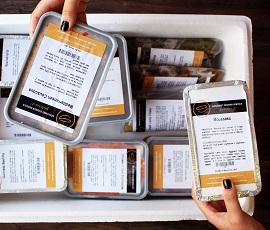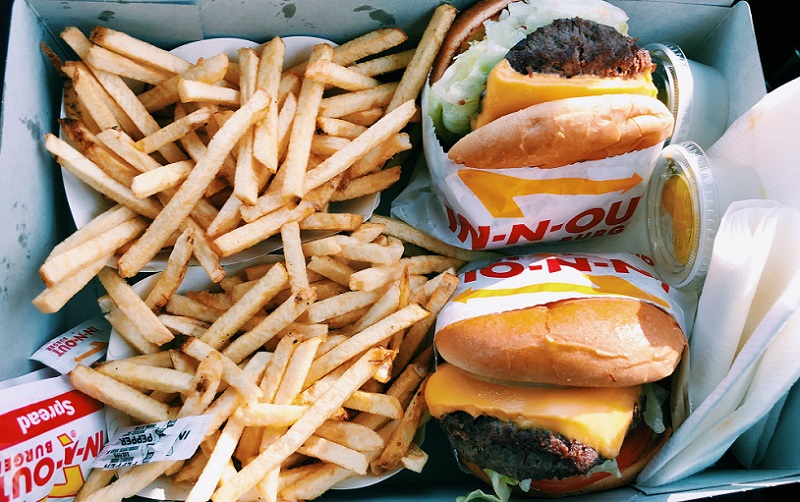Food Additives to Avoid – What are the dangers?

We’ve all heard about hyperactive kids on red cordial but is this just hyperbole? What are the dangers (if any) of food additives to adults and children alike, and should you be worried about consuming them?
The answer is yes, you ought to be concerned, especially if you eat a lot of processed food, which is where a large number of food additives tend to lurk.
What’s alarming though is that additives are now used in healthy foods such as bread, butter, yoghurt, juice and muesli bars; foods that in past decades were additive-free.
According to the Food Intolerance Network, Australia most consumers underestimate how many additives they eat and nor do they know which foods contain the nasties. The average consumer eats a staggering 20 additives per day!
Potential side effects of food additives
Certainly, some people are more sensitive to the effects of food additives, and are therefore more likely to notice symptoms after eating them. Others not so much. Children, due to their smaller size are considered particularly susceptible.
Because reactions are dose related, the more you eat of a food additive, the more likely you are to experience negative outcomes. The list of reported side effects is quite extensive! Here are just some of them:
- irritability and restlessness
- anxiety, depression, panic attacks
- difficulty concentrating
- headaches or migraines
- fatigue
- speech delay, learning difficulties
- eczema, hives and other itchy skin rashes
- stomach troubles such as reflux, bloating, constipation, diarrhoea
- frequent colds, flu, cough or asthma
- joint pain, arthritis,
- heart palpitations
What about the science?
If you’re the type of person to want more solid evidence, below are a few scientific studies for you to sink your teeth into. Oh my, so many we could choose to share with you, but we’ve limited ourselves to just 5!
Artificial colours cause hyperactivity in kids - artificial colours and sodium benzoate preservative increased hyperactivity in both test groups of 3 year olds and 8/9 year olds.
Emulsifiers exacerbate cancer tumours – consuming dietary emulsifiers changed the composition of gut microbiota in mice, which lead to increased tumour initiation and development.
Mania from cured meats – eating nitrated dry cured meat (such as ham, bacon, salami, chorizo and hot dogs) caused manic behaviours in humans.
Bread preservative induces autistic behaviours – propionic acid (PPA) induced autism-like behaviours, including increased aggression and isolation.
MSG linked to belly fat – higher MSG intake was associated with an increased risk of being overweight.
So, which are food additives to avoid?
The list is rather long indeed, so we’ve included just a summary here. For the comprehensive catalogue of culprits, we refer you to the Food Intolerance Network Factsheet.
- Artificial colours - numbers in the 100’s found in sweets, drinks, takeaways, cereals and many processed foods.
- Natural colour - 160b annatto found in yoghurts, ice creams, popcorn. 160a is a safe alternative.
- Preservatives - numbers in the 200’s found in margarine, dips, cakes, fruit products, juices, soft drinks, cordials, dried fruit, bread and bakery products, processed meats.
- Synthetic antioxidants - numbers in the 300’s found in margarines, vegetable oils, fried foods, snacks, biscuits.
- Flavour enhancers - numbers in the 600’s found in tasty, savoury foods.
Is there any avoiding food additives altogether?
Yes, the good news is that you can evade food additives if you stick with eating real, fresh, wholefoods and do a lot of home cooking that doesn’t use packet mixes or sauce jars, canned products or processed ingredients. Try to use foods that are as close to their natural state as possible and utilise fresh or dried herbs and spices for flavour instead.
If you’re not cooking yourself but looking for something quick and easy then luckily you can turn to us! Our chef-made, restaurant-quality meals are made fresh, then snap-frozen to retain nutrients and flavours. We never use any nasty additives, preservatives, artificial ingredients or genetically modified anything. And that’s a fact. Check out the Gourmet Dinner Service menu here.
















